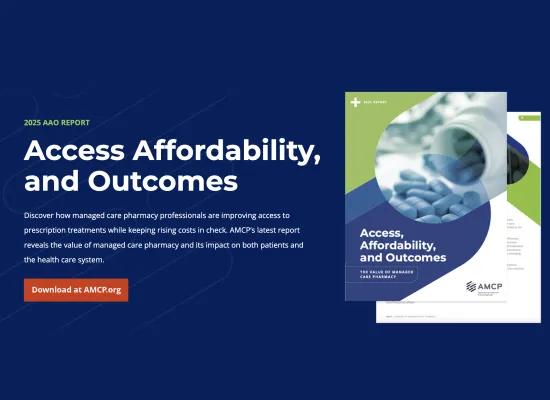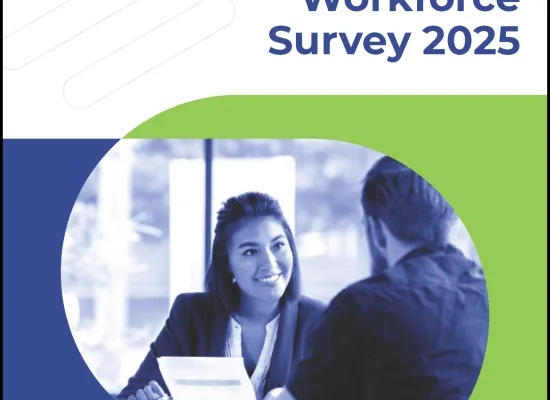
America’s Pharmaceutical Supply and Payment Chain Collaborating to Promote Undisrupted Patient Access to Medications
Washington, D.C., May 27, 2020 — Today, representative organizations of America’s pharmaceutical supply and payment chain, including prescription and over-the-counter brand and generic manufacturers; wholesalers; retail, specialty, and managed care, pharmacies; health insurance providers and other payers; pharmacists in hospitals and health systems; and pharmacy benefit managers, released new policy principles to promote undisrupted patient access to medications during the COVID-19 pandemic.
The principles represent private-sector collaboration to mitigate drug shortages and ensure the safety, security, and reliability of the pharmaceutical supply chain amidst this unprecedented health care system challenge.
Participating organizations include:
- Academy of Managed Care Pharmacy
- America’s Health Insurance Plans
- American Society of Health-System Pharmacists
- Association for Accessible Medicines
- Biotechnology Innovation Organization
- Blue Cross Blue Shield Association
- Consumer Healthcare Products Association
- FMI – the Food Industry Association
- Healthcare Distribution Alliance
- National Association of Chain Drug Stores
- National Association of Specialty Pharmacy
- National Grocers Association
- Pharmaceutical Care Management Association
- Pharmaceutical Research and Manufacturers of America
The organizations today sent a letter to Vice President Mike Pence and Congressional Leaders with the following principles to facilitate patient access to the drugs they need through a well-functioning pharmaceutical supply chain:
- Patients should have safe, convenient, and reliable access to their medicines. Following Centers for Disease Control and Prevention’s (CDC’s) advice, patients may elect to receive an extended days’ supply of most maintenance and specialty medicines, when clinically appropriate, including through delivery to their homes. Patients should have the flexibility to decide where they receive infused or injected medicines and may wish to have access to safe treatment at home when clinically appropriate.
- Both the private and public sectors should work together to sustain access to care for patients and help to mitigate disruptions and shortages. Supply chain stakeholders continuously assess for shortages or disruptions and collaborate with public health agencies on efforts to sustain access to care. Through Food and Drug Administration (FDA) led and industry-supported surveillance efforts, including publicly reported, practitioner-focused shortage information, timely information collection and awareness enables the best management of supply and contingency solutions to minimize the impact on patient care.
- The pharmaceutical supply and payment chain, including health care providers, should have timely access to information on disruptions and shortages during a public health emergency. The FDA should continue to provide timely information on affected products and the expected duration, so that pharmacies, prescribers, and payers can facilitate adjustments to care and reduce patient disruption.
- Policymaking should prioritize patient needs by balancing clinically appropriate drug supplies, efforts to prevent inappropriate stockpiling, substitution and therapeutic interchangeability if shortages occur, and the need to manage drug shortages already occurring and mitigate future drug shortages risks. For drugs in or anticipating a shortage,there should be flexibility to adjust the supply of medicines to have on hand, which will enable more patients to have access.
- National clinical guidance for health care providers should be issued on potential and approved COVID-19 treatments. If existing FDA-approved drugs are found to be safe and effective in treating COVID-19, policymakers must balance broad public health needs while working to maintain access to these drugs for patients who currently rely on them.
- A closely connected, diverse, and resilient global pharmaceutical supply chain is the best means to ensure a consistent and affordable supply of medicines for patients. As our country addresses the COVID-19 pandemic, reliable patient access to affordable medications remains a significant concern. We support manufacturing in the United States and exploring incentives to maintain, utilize and attract investment in domestic manufacturing. We should avoid measures that could trigger protectionist responses and instead deepen relationships with international trading partners to promote resiliency and diversity of the global pharmaceutical supply chain. Specifically, the U.S. Government should avoid adopting policies that may have an unintended impact on the U.S. pharmaceutical supply, including requirements to buy only drugs, or a percentage of drugs, manufactured in the United States.
- Logistics and distribution systems that deliver pharmaceuticals should be prioritized to alleviate a potential source of disruption or shortage. We strongly encourage government officials to engage with the U.S. and global airline, shipping and mail, and logistics industries to ensure prioritization and guaranteed cargo space related to the transport of pharmaceuticals,medical devices, and medical supplies.
Contact the spokesperson for each organization:
- Academy of Managed Care Pharmacy: Abigail Fredenburg (@email)
- America’s Health Insurance Plans: Kristine Grow (@email)
- American Society of Health-System Pharmacists: Aretha Hankinson (@email)
- Association for Accessible Medicines: Rachel Schwartz (@email)
- Biotechnology Innovations Association: Brian Newell (@email)
- Blue Cross Blue Shield Association: Kristine Grow (@email)
- Consumer Healthcare Products Association: Lauren Bloomberg (@email)
- FMI – the Food Industry Association: Heather Garlich (@email)
- Healthcare Distribution Alliance: John Parker (@email)
- National Association of Chain Drug Stores: Chris Krese (@email)
- National Association of Specialty Pharmacy: Sheila Arquette (@email)
- National Grocers Association: Laura Strange (@email)
- Pharmaceutical Care Management Association: Charles Cote (@email)
- Pharmaceutical Research and Manufacturers of America: Nicole Longo (@email)
Featured News & Resources
See Full CalendarAward Applications Open
AMCP eLearning Day: Nexus Encore
AMCP 2026 Registration Opens
Upcoming Events
AMCP offers a wide variety of educational opportunities, from events and webinars to online training.







